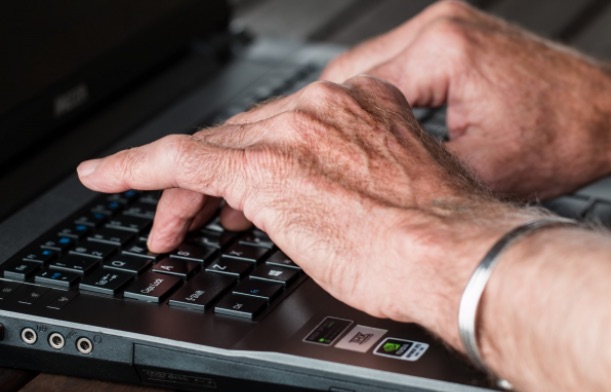Get safer online
Technology doesn’t have to be scary, decrease your likelihood of falling prey to cybercrime with these three tips.
 Statistics from the Cyber Security Agency of Singapore (CSA) show that cybercrime is on the rise. A separate Nanyang Technology University (NTU) paper shows that cybercrimes target seniors. However, that doesn’t mean that elderly users should avoid using technology! Here are ways to become safer online and decrease the likelihood of falling for a cybercrime.
Statistics from the Cyber Security Agency of Singapore (CSA) show that cybercrime is on the rise. A separate Nanyang Technology University (NTU) paper shows that cybercrimes target seniors. However, that doesn’t mean that elderly users should avoid using technology! Here are ways to become safer online and decrease the likelihood of falling for a cybercrime.
- Do you sometimes read the news on your mobile phone? – It’s so easy to keep up with the news on your mobile phone now. With news applications delivering the latest news in real-time and messaging applications that let you stay in touch with your friends, do you know which applications are safe to download? Here are some things to look out for before you download any new applications:
- Did you know that only applications from the official Apple App or Google Play stores are safe to use? Downloading apps or games from anywhere else could infect your phone with malicious software (‘malware’ for short)! Only applications from the official Apple App or Google Play stores are thoroughly checked to be safe for users.
- For double protection, download an anti-virus app for your phone. This can remove malware and block unsecured websites, and there are free anti-virus apps available too. So, how do you know if your phone may be infected? If you find that your phone is slower than usual, or if your battery drops to “low battery” mode very quickly, then your phone might have been infected.
- Keep your phone working smoothly for as long as possible! This means updating your mobile phone software when your phone asks you to. This doesn’t just ensure that your phone works well, it also keeps your private information safe.
- Do you like joining online contests and finding deals? – Singaporeans love joining contests and finding deals. We used to spend our time filling our NTUC or Sheng Shiong receipts to participate in lucky draws. Nowadays, you can do it easily online. However, not all contests are legitimate. Some contests are designed by attackers to steal people’s data. How can you tell if the contests are real? Before you participate and give your personal details, ask yourself:
- Is it too good to be true? – If the rewards are extremely attractive, and all you need to do is reply or click the URL, double-check with your family members or your friends first. You may be giving away your private information to hackers who can use that information to harm you.
- Is the information presented accurate? – Always check the URL of the website address. Sometimes the website address stated in the e-mail or website may look legitimate, but the URL linked to it is not the same. Hover your mouse over the website address, and see if it matches. If the website address does not match the URL, exit the page immediately!
- Using social media applications – When you have many social media accounts, it is convenient to just use the same password or very simple passwords for everything. According to a TIME magazine survey, ‘123456’ was the most common password of 2017. If your password is ‘123456’ or similar, it’s not secure enough! But if you’re worried you don’t know how to create or remember a difficult password, don’t worry – we have some tips to help you protect your information from hackers, who would use the information we put on our social media accounts to scam us or our loved ones.
- Instead of creating passwords with random characters, create passphrases! Passphrases consist of full sentences, which are longer and harder to hack. The longer your sentence, the better – we recommend at least five words. You can make it more random yet easier to remember by thinking of your favourite celebrities, food, or places. For example, if you love kaya toast and have it in the morning every day, your password could be “ihadKAYAtoastAT8am”.
- More importantly, just like how you use different keys to open your doors and your mailbox, you should also use different passwords for different accounts.
- Your information is as important as the money in your CPF. Just like how you use 2-Factor Authentication (2FA) to access your CPF account, you should do the same for your social media accounts as well. This ensures that even if a hacker is able to guess your password, they are not able to access your account because only you would be able to perform the second layer of security via 2FA.
For more information, check out the Gosafeonline website at www.csa.gov.sg/gosafeonline.

0 Comments